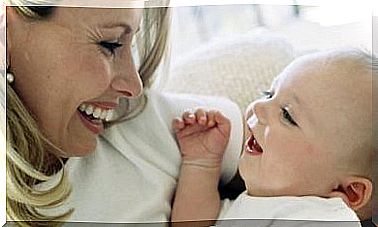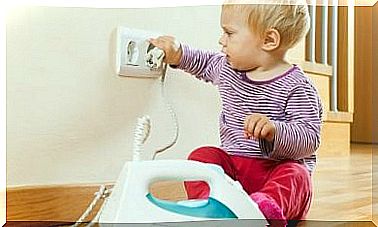Effects Of Caffeine On The Baby During Breastfeeding

Many mothers enjoy drinking coffee at various times of the day, but are not fully aware of the effects of caffeine on the baby. During pregnancy, excessive caffeine consumption is directly related to the risk of miscarriage, premature labor and a low birth weight of the baby.
Once the baby is born, there are also many myths related to the effects of caffeine on the baby during breastfeeding. At the moment of beginning this stage, it is normal that you wonder what coffee can cause in the baby. Although this drink is not considered prohibited, it is important to know that it can reach the baby through breast milk. In fact, some experts recommend substituting water or fresh juices for coffee.
Effects of caffeine on the baby during breastfeeding
Although the specialists of the American Pediatric Association consider coffee as a safe drink during breastfeeding, it can have several effects on the baby if its consumption is excessive.
- Insomnia and other sleep-related problems.
- Nervousness.
- Irritability.
To this we must add that some babies are more sensitive than others to coffee consumption. What makes these effects may be stronger in some infants than others. In addition, we must remember that caffeine remains much longer in your body, because you are not yet able to eliminate it.

Studies on coffee and lactation
A recent study of the effects of caffeine on babies, published by the journal Pediatrics , concluded that if mothers consume a moderate amount of caffeine per day, the babies’ mood and sleep would not be affected. This study was carried out in Brazil, for which a total of 900 mothers were interviewed during the lactation stage.
On the other hand, the study carried out by Ina Santos of the Federal University of Pelotas, in Brazil, determined that to reach this conclusion 885 mothers were interviewed during the lactation stage, mainly inquiring into their caffeine consumption and the quality of the babies sleep at three months of age.
The majority of those surveyed claimed to have consumed coffee during pregnancy and around 14% confessed an excessive intake of caffeine during breastfeeding.
The researchers did not find a direct relationship between caffeine consumption and sleeping problems in babies, since this depends on the habits of each one of them. But in the same way, they show that moderate caffeine consumption during pregnancy and lactation can be safer for both the mother and the baby.
How much coffee should you drink while breastfeeding?
It has been shown that taking 100 mg of caffeine a day does not usually cause detectable levels in breast milk. Experts recommend that the amount that the mother can consume is 300 mg a day, that is, 2 or 3 cups of coffee maximum, always studying the amount of coffee used and the size of the cup.

If the recommended amount is respected, the baby will not receive large amounts of caffeine that can alter his sleep and personality. This happens mainly with coffee, but we must remember that other foods also contain caffeine, therefore, we must always pay attention to the ingredients of prepared foods and calculate how much caffeine our body is receiving during the day.
The baby’s body is usually very delicate and taking too much caffeine can cause a lot of damage. Take care of your health and that of the baby by drinking coffee in moderation. Although it may seem complicated, it is only a matter of waiting a few months. Everything we like comes with a small sacrifice. Your baby deserves that and much more.










